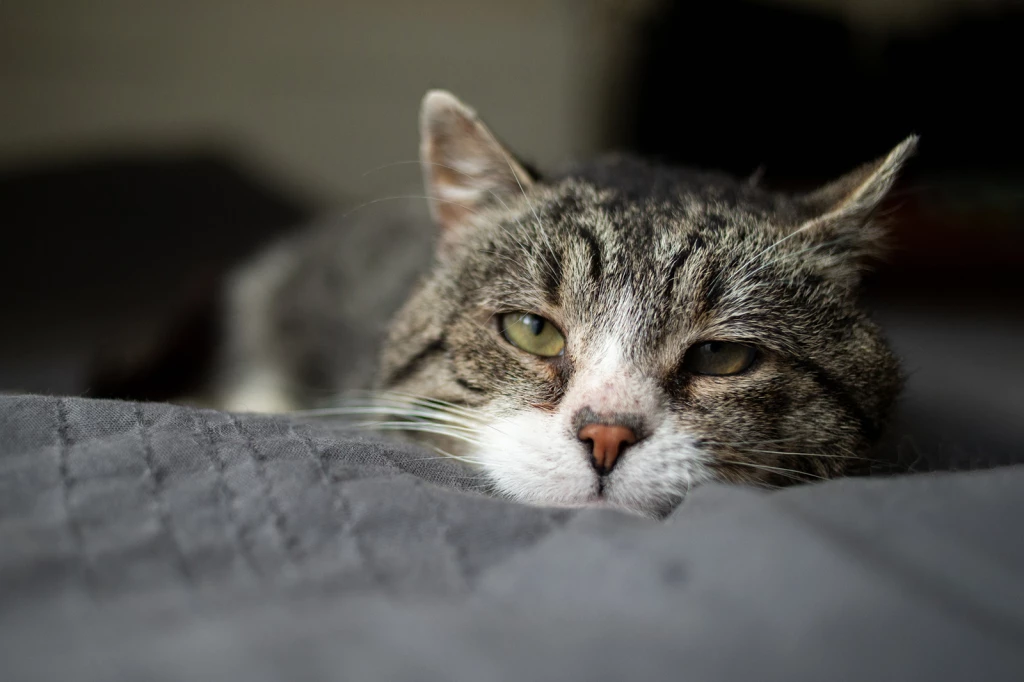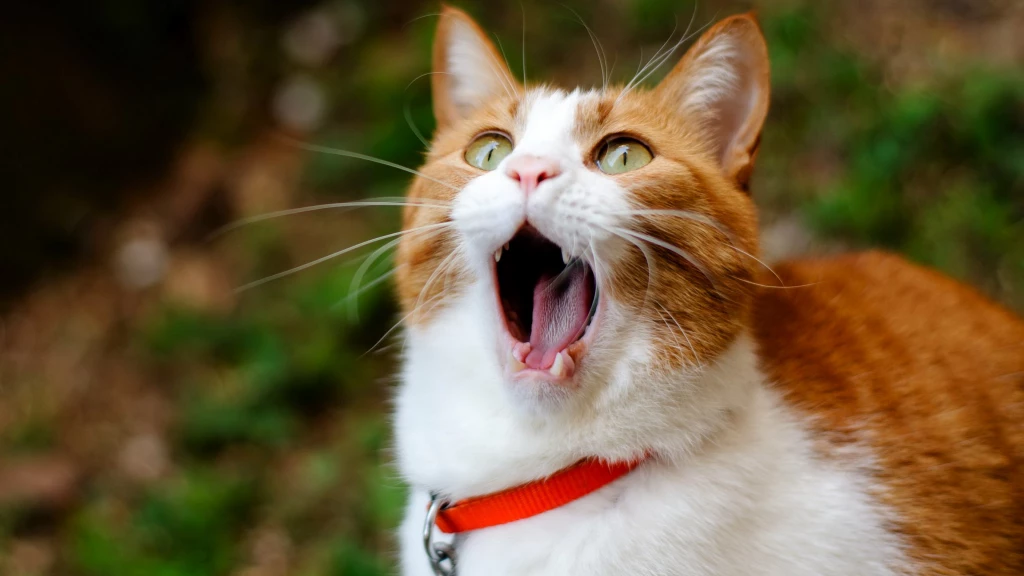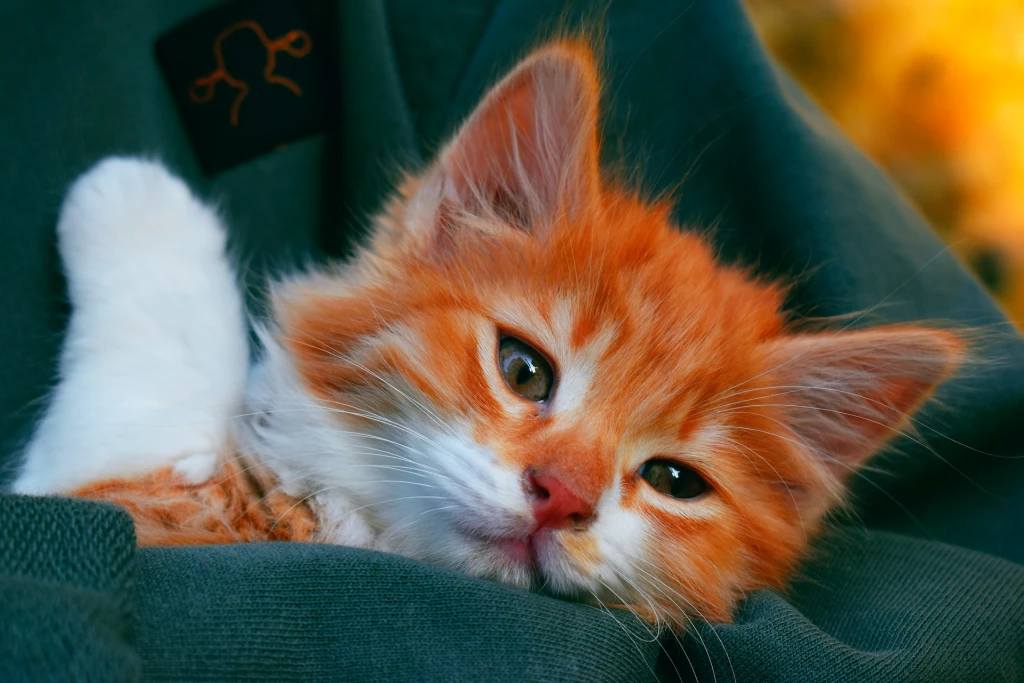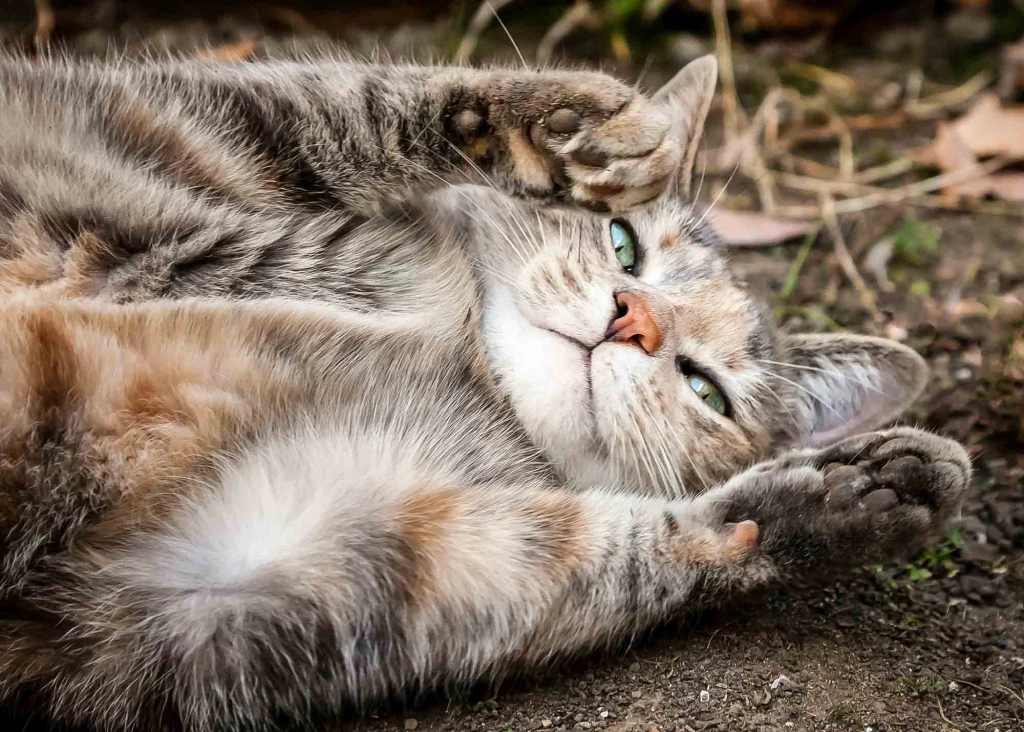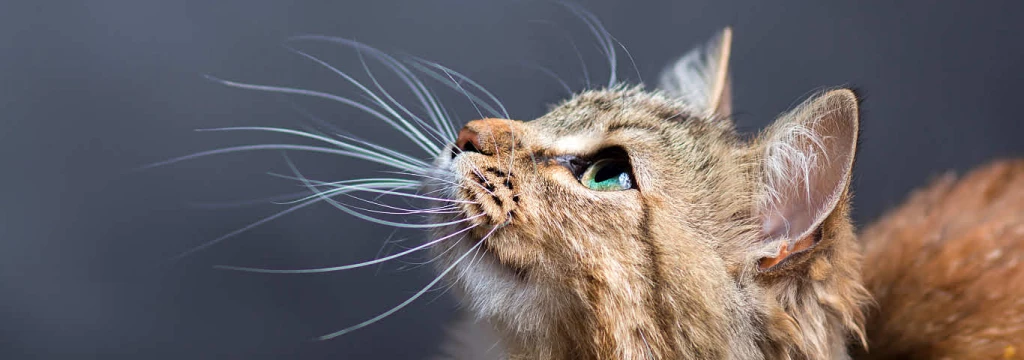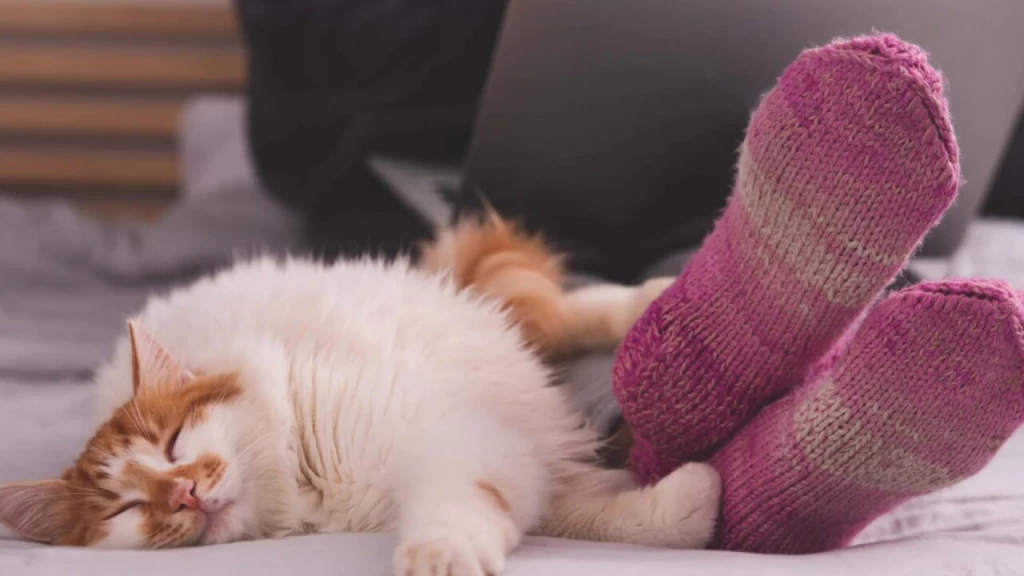Cats are mysterious and fascinating creatures, and one of their most intriguing behaviors is purring. While most people associate purring with happiness and contentment, cats can also purr for other reasons, such as when they are in pain or stressed. But what about when they are dying? Why do some cats purr when they are facing their final moments?
In this blog post, we will explore the science behind cat purring, the connection between cat purring and death, and the emotional significance of cat purring during the dying process. By the end of this post, you will have a better understanding of why cats purr when they are dying and what it means for both the cat and their owners.
The Science Behind Cat Purring
Purring is a unique feature of cats that has puzzled scientists for years. Researchers have discovered that cats purr by vibrating their laryngeal muscles at a frequency of around 25 to 150 Hertz. This creates the distinctive purring sound that we associate with contented cats.
Cats purr for various reasons, including when they are happy, relaxed, or in pain. Purring is also a way for cats to communicate with their owners and other cats. A low-pitched purr typically indicates that a cat is relaxed and content, while a high-pitched purr can indicate excitement or anxiety.
Interestingly, not all cats purr in the same way. Some cats produce a deeper and more resonant purr, while others produce a higher-pitched and less intense purr. Additionally, some cats have been observed to produce a purr that includes a “chirping” or “trilling” sound.
Despite years of research, the exact purpose of cat purring remains ambiguous. However, studies have suggested that purring can have a therapeutic effect on cats, helping them to relax and heal more quickly from injuries. Purring may have developed as a mechanism to keep a cat’s bones and muscles in peak condition. This is helpful during the long periods of inactivity in their style of hunting, which is to wait for prey to come by and then ambush it.
Purring is a complex process that benefits both the cat and those around her. As a palpable and auditory communication signal, it is important in cat’s social lives. When do cats learn to purr? Cats learn to purr from a young age and the mechanism is vital to their survival. “A kitten’s natural instinct to purr starts from as early as two days old,” says Dr. Jamie Richardson, medical chief of staff of Small Door Veterinary in New York City.
“This helps them communicate with their mother and between littermates.” A mother cat communicates with her newborn babies through the purring vibrations to let them know that she’s there, as the babies are born without sight or hearing. Purring—instead of making other vocalizations—makes it more difficult for predators to locate recent moms and kittens in the wild.
Do Cats Know When They Are Dying?
Cats are highly attuned to their bodies and can sense when something is not right. They may also have an instinctive awareness of death, as they are predators and prey in the wild. But how well do they understand the concept and finality of their own passing? Do they fear death or accept it as a natural part of life?
There is no definitive answer to these questions, as cats are complex and mysterious creatures. However, based on anecdotal evidence and scientific research, we can infer that cats do have some level of knowledge and perception of death, both of themselves and others.
Cats may show some signs that indicate that they are close to death, such as losing appetite, becoming lethargic, or showing signs of pain or discomfort. They may also change their behavior, such as becoming more withdrawn or seeking out quiet and secluded places to rest.
Some cats may prefer to be alone in their dying days, while others may prefer to be as near as possible to their loved ones. Cats may also purr more when they are dying, which could indicate their pain, their coping strategy, or their contentment.
Cats may also have a sense of smell that allows them to detect the chemical changes that occur in an animal or human body immediately before death. They may also respond to the physical and emotional needs of the dying person or animal by providing comfort, companionship, or protection.
While we may never fully understand what goes on in a cat’s mind when they are dying, we can respect their wishes and needs and provide them with the best care possible. We can also cherish the memories and bond we shared with them and honor their life.
The Connection Between Cat Purring And Death
Purring is one of the most common sounds that cats make, but it is also one of the most mysterious. While we often associate purring with happiness and contentment, cats can also purr for other reasons, such as when they are in pain or stressed. But what about when they are dying? Why do some cats purr when they are facing their final moments?
There is no definitive answer to this question, as cats can purr for a variety of reasons. However, some possible explanations are:
- As a sign of contentment and peace: Some cats may purr when they are dying to express their gratitude, love, and trust to their owners or other cats. They may also purr to signal that they are ready to be put to sleep and that they have accepted their fate.
- As a way to express their feelings and communicate their needs: Some cats may purr when they are dying to indicate their pain, discomfort, or fear. They may also purr to ask for help, comfort, or attention from their owners or other cats.
- As a way to soothe themselves and cope with stress: Some cats may purr when they are dying as a coping mechanism for dealing with the physical and emotional changes that they are experiencing. Purring may help them to relax, calm down, and reduce their anxiety.
- As a way to heal themselves and ease their pain: Some cats may purr when they are dying as a form of self-medication and pain control. Purring has been found to strengthen the cat’s muscles and may even produce endorphins that assist them to deal with the discomfort they are experiencing.
Purring during death can have different meanings for both the cat and their owners. For the cat, it may be a way of expressing their emotions, communicating their needs, soothing themselves, or healing themselves. For the owners, it may be a way of receiving comfort, reassurance, or closure from their beloved cat.
Purring is a complex and mysterious phenomenon that can have different meanings depending on the context and the individual cat. By paying attention to your cat’s purring and other behaviors, you may be able to understand what they are trying to tell you and how you can best support them in their final moments.
The Emotional Significance Of Cat Purring During Death
Cat purring during death can have different meanings for both the cat and their owners. It can be a source of comfort, reassurance, or closure, but it can also be a source of sadness, guilt, or confusion. Here are some possible emotions that a cat may experience when they purr during death, and some possible emotions that an owner may experience when they hear their cat purr during death.
- Gratitude: A cat may purr when they are dying to express their gratitude to their owners or other cats for the love, care, and companionship they have received throughout their life. They may also purr to thank their owners for making the difficult decision to end their suffering and let them go peacefully.
- Love: A cat may purr when they are dying to express their love to their owners or other cats. They may also purr to feel the love of their owners or other cats in return. Purring can be a way of creating a bond and a connection that transcends words and physical barriers.
- Trust: A cat may purr when they are dying to express their trust to their owners or other cats. They may also purr to show that they trust their owners or other cats to take care of them and respect their wishes in their final moments. Purring can be a way of showing confidence and security in the relationship.
- Acceptance: A cat may purr when they are dying to express their acceptance of their fate. They may also purr to signal that they are ready to be put to sleep and that they have no regrets or fears about leaving this world. Purring can be a way of showing peace and serenity in the face of death.
- Sadness: An owner may feel sad when they hear their cat purr during death, as it can be a reminder of the loss and grief they are about to face. They may also feel sad for their cat, as they may wonder if their cat is happy or suffering in their final moments. Hearing a cat purr during death can be a way of experiencing sorrow and mourning for the beloved cat.
- Comfort: An owner may feel comforted when they hear their cat purr during death, as it can be a sign that their cat is content and peaceful. They may also feel comforted by their cat, as they may feel that their cat is trying to soothe them and ease their pain. Hearing a cat purr during death can be a way of experiencing relief and consolation for the owner.
- Guilt: An owner may feel guilty when they hear their cat purr during death, as it can make them question if they are doing the right thing by ending their cat’s life. They may also feel guilty for not being able to save their cat or make them live longer. Hearing a cat purr during death can be a way of experiencing doubt and remorse for the owner.
- Relief: An owner may feel relieved when they hear their cat purr during death, as it can indicate that their cat is not in pain or distress. They may also feel relieved for themselves, as they may feel that they have done everything they could for their cat and that they have made the best decision for them. Hearing a cat purr during death can be a way of experiencing closure and acceptance for the owner.
Cat purring during death can evoke different emotions depending on the context and the individual cat and owner. By understanding the possible meanings behind cat purring during death, you may be able to cope better with the loss of your cat and cherish the memories you shared with them.
How Do Cats Behave Before Dying?
Cats are notorious for hiding their illness and pain, so it can be hard to tell when they are nearing the end of their life. However, there are some signs and behaviors that may indicate that your cat is close to death, such as:
- Changes in temperament: This is one of the most striking behavioral changes in a dying cat. Your cat may become more withdrawn, aggressive, or clingy than usual. They may also lose interest in their favorite activities, toys, or people. They may seek more attention and affection from you, or they may prefer to be left alone.
- Wants to be alone: Since cats and other animals have an amazing sense of death approaching them, they prefer quiet and lonely places for comfort during this phase. They may hide under the bed, in the closet, or in a dark corner. They may also avoid loud noises, bright lights, or other stimuli that may stress them out.
- Trying to find comfort: Some cats may try to find comfort in familiar objects or places before dying. They may return to a favorite bed, blanket, or pillow to make themselves comfortable. They may also cuddle with their owner or another cat for warmth and security.
- Being inactive: A dying cat may become very lethargic and sleep most of the time. They may have difficulty moving around or getting up from their resting place. They may also lose their balance or coordination and stumble or fall.
- Having difficulty breathing or swallowing: A dying cat may have trouble breathing normally or swallowing food or water. They may breathe rapidly, shallowly, or irregularly. They may also cough, wheeze, or gasp for air. They may drool excessively or have a dry mouth.
- Having seizures or spasms: A dying cat may experience seizures or spasms as their brain function deteriorates. They may twitch, jerk, or convulse uncontrollably. They may also lose consciousness or become unresponsive.
- Losing control of their bodily functions: A dying cat may lose control of their bladder or bowels and urinate or defecate involuntarily. They may also vomit or have diarrhea. They may have a foul odor due to the waste products accumulating in their body.
If you notice any of these signs or behaviors in your cat, you should consult your veterinarian as soon as possible. Your vet can help you determine if your cat is dying or if they have a treatable condition that can improve their quality of life. Your vet can also advise you on how to comfort your cat and when to consider euthanasia if necessary.
How To Comfort A Dying Cat?
Comforting a dying cat can be challenging but rewarding for both the cat and the owner. You may feel helpless and powerless, but there are some things you can do to make your cat’s final days more comfortable and peaceful. Here are some ways to comfort a dying cat:
- Provide them with a warm and cozy place to rest: Dying cats may feel cold and vulnerable, so they need a warm and comfortable spot to relax and sleep. You can provide them with extra bedding, blankets, pillows, or heated pads to keep them cozy. You can also place them in a quiet and not dark room, away from any noise or stress that may disturb them.
- Give them gentle pets and massages: Dying cats may appreciate some physical contact and affection from their owners or other cats. You can gently pet, stroke, or massage your cat’s head, back, or belly to soothe them and show them your love. You can also talk to them softly and reassuringly, telling them how much you love them and appreciate them.
- Offer them their favorite treats or toys: Dying cats may lose their appetite or interest in food, but they may still enjoy some of their favorite treats or toys. You can offer them some wet food, tuna, chicken, or cheese to tempt them to eat. You can also give them some catnip, feathers, balls, or other toys to stimulate them and make them happy.
- Play soothing music or sounds: Dying cats may benefit from some soothing music or sounds that can calm them down and ease their pain. You can play some classical music, nature sounds, or white noise for your cat to listen to. You can also use a diffuser or spray some calming pheromones like Feliway around your cat’s resting area.
- Consult your veterinarian for pain relief options: Dying cats may suffer from pain or discomfort due to their illness or condition. You can consult your veterinarian for pain relief options that can help your cat feel more comfortable and relaxed. Your veterinarian may prescribe some painkillers, anti-inflammatories, or sedatives for your cat to take orally or by injection.
- Consider euthanasia if necessary: Euthanasia is a difficult but sometimes necessary decision that you may have to make for your dying cat. Euthanasia is a humane and painless way of ending your cat’s suffering and letting them go peacefully. You can consult your veterinarian for advice on when and how to euthanize your cat. You can also choose to be with your cat during the procedure or say goodbye beforehand.
Comforting a dying cat can be an emotional and stressful experience for you, but it can also be a meaningful and rewarding one. By following these tips, you can comfort your cat and make their final days more comfortable and peaceful. You can also cherish the memories and bond you shared with your cat and honor their life.
Final Thoughts On Why Cats Purr When They Are Dying
Cat purring during death is a complex and mysterious phenomenon that can have different meanings for both the cat and their owners. It can be a sign of contentment, pain, communication, or self-healing. It can also evoke different emotions such as gratitude, love, trust, acceptance, sadness, comfort, guilt, or relief.
There is no definitive answer to why cats purr when they are dying, as cats can purr for a variety of reasons. However, by understanding the possible meanings behind cat purring during death, you may be able to cope better with the loss of your cat and cherish the memories you shared with them.
Cats are amazing and unique creatures that have the ability to touch our hearts and enrich our lives. Their purring is one of their most distinctive and fascinating features that can convey a lot of information and emotion. Whether they purr when they are happy, stressed, or dying, they are always trying to tell us something and connect with us in their own way.
